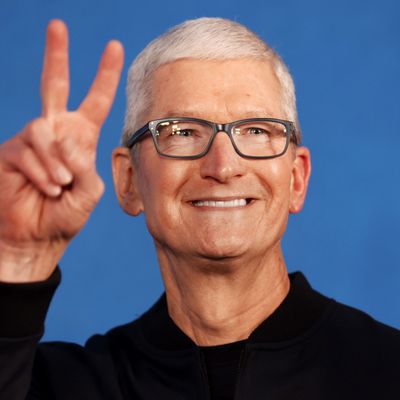
A judge issued a ruling in the long-running Epic Games versus Apple battle last week, which could have been a watershed moment — and on first blush seemed like bad news for the world’s most valuable company. On the latest Pivot podcast, Kara Swisher and Scott Galloway discuss why it was only a mild blow.
Kara Swisher: Apple is expected to reveal a new iPhone today, but the biggest update may be in its app store. That’s because of a ruling in the Epic versus Apple lawsuit, which came down in Apple’s favor, with one big exception. A judge ruled that Apple does not have to reduce the fees it charges developers in its app stores, which are currently from 15 to 30 percent. Epic Games’ Fortnite remains banned from the App Store because they broke their contract. However, the judge allowed that the developers can use non-App Store payment to get around Apple store fees. That’s a big change. Epic still filed an appeal because the judge didn’t declare Apple a monopoly, but it’s a really interesting ruling. And to me, Apple did win because they were going in this direction anyway with their previous settlement the week before. And Mark Gurman, who writes really well about Apple, was like, “Look, it’s not that much money for them. They were going in this direction anyway.” And most people will probably still pick Apple as the payment system. So what do you think?
Subscribe on:
Scott Galloway: Look, this was an interesting case of the media deciding, “Oh, wouldn’t it be more interesting to say ‘epic fail for Apple?’” And the reality was it was probably more of a win for Apple. This distills down to what a lot of antitrust lawyers on both sides of the issue will say, and that is being a monopoly isn’t illegal, it’s abusing monopoly power that’s illegal. And what they’ve said is, okay, my understanding of the ruling is the judge has basically said you’ve invested a lot, you’ve done a good job. People get utility from those. Consumers clearly love it. They don’t feel angry that they have to wait for someone to come install their cable between the hours of 1 and 5 in three months, because you have a regulated monopoly. But what they’ve said is it’s monopoly abuse. You can continue to charge 30 percent. You can continue to have somewhere between 55 and 85 percent market share, depending on how you calculate it. But what you can’t do is, once someone’s downloaded the app, decide that all tail activity within the app, you get a commission on. They saw that as monopoly abuse. So I thought it was more of a win for Apple, if you will, than for Epic.
Swisher: I actually did think the judge did a good job. It seemed like she sort of cut the baby a little bit.
Galloway: Yes. Split the baby, 100 percent.
Swisher: And I think she was very deft in doing it, but she definitely didn’t go far. She didn’t want this to lose on appeal, obviously. Now Epic is appealing this and it’s going to keep going upwards. But I feel like Apple was going to give on this. I think Gurman is right that, you know — a couple billion here and there — they don’t care. They make so much money everywhere else, including an iPhone, presumably. They did not get the tough ruling that maybe many people think they deserve, which I think was interesting.
Galloway: This also highlights that we’re going to have to change the law if we do, in fact, believe that big tech has become bad for the economy and bad for job growth. And I think there’s a lot of evidence that you’re probably going to have to have a fundamental shift in antitrust laws, because as they’re interpreting it now, it’s going to be very difficult for Lina Khan. I just hope the FTC and the DOJ don’t become like the Los Angeles Rams in the ’80s when Joe Namath is literally almost in a wheelchair. We don’t need these formerly important and impressive people. We need people to come there and actually get shit done.
Pivot is produced by Lara Naaman, Evan Engel, and Taylor Griffin
This transcript has been edited for length and clarity.





























